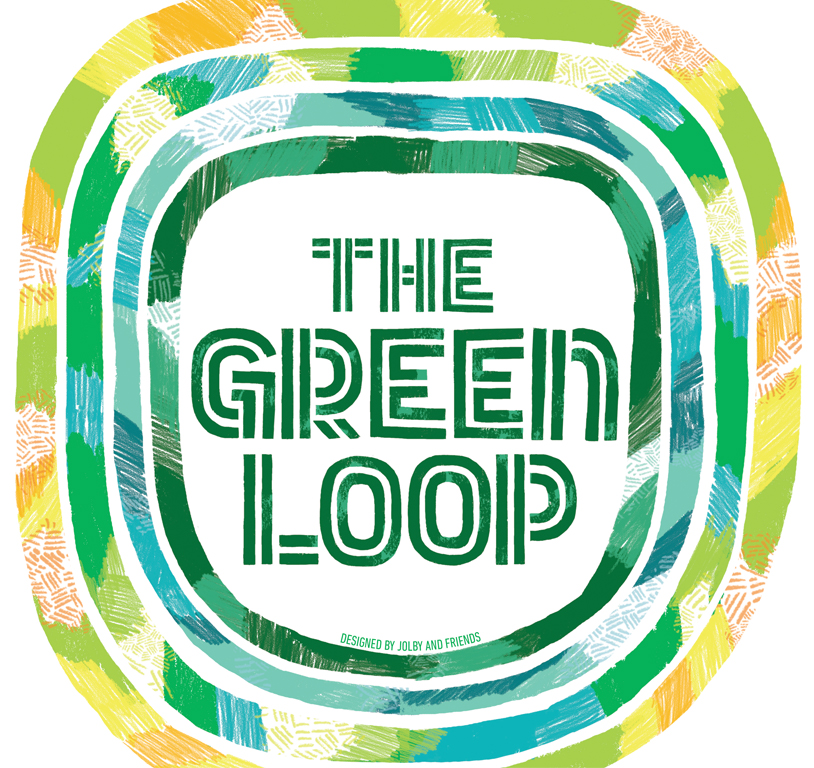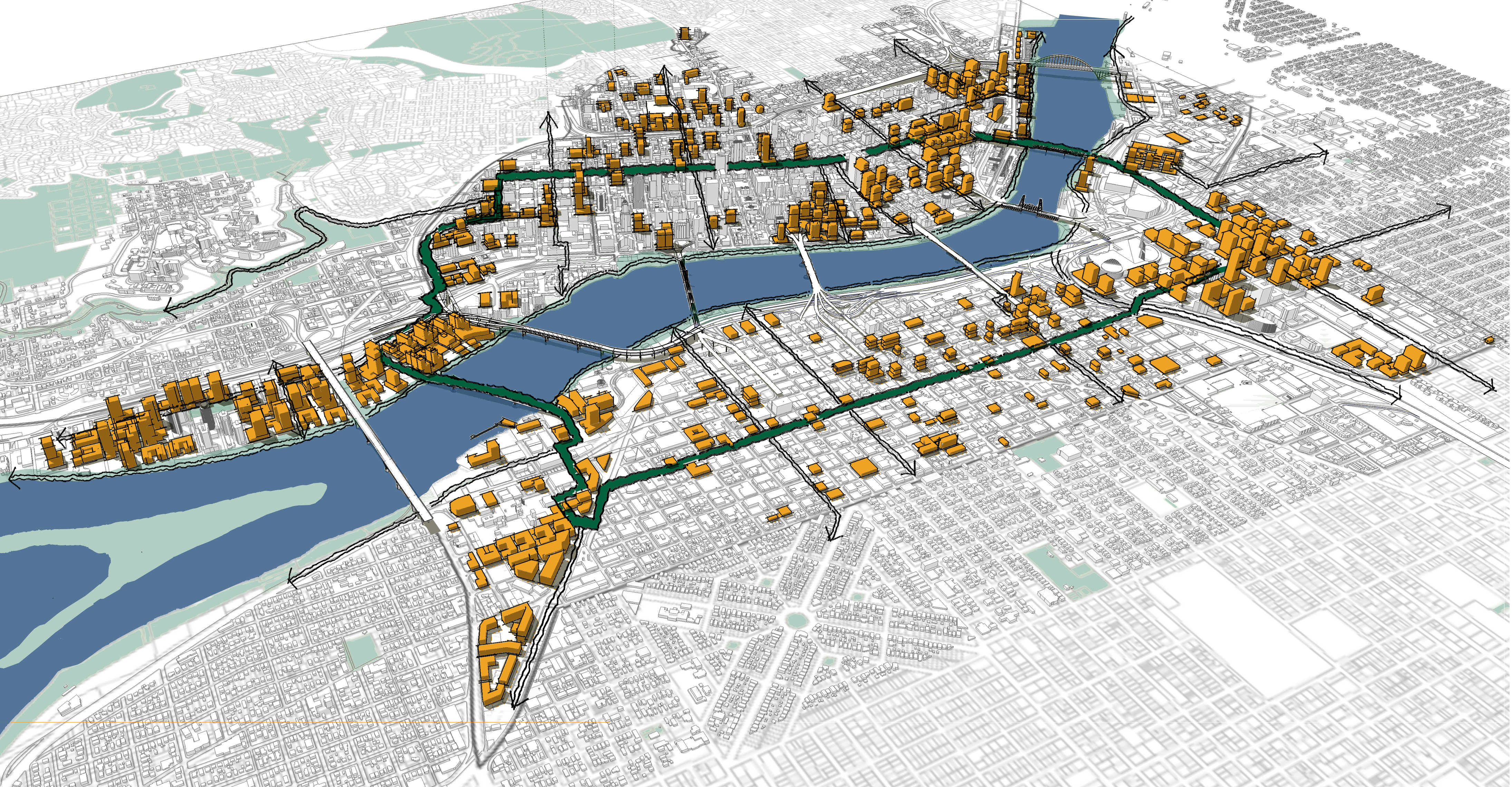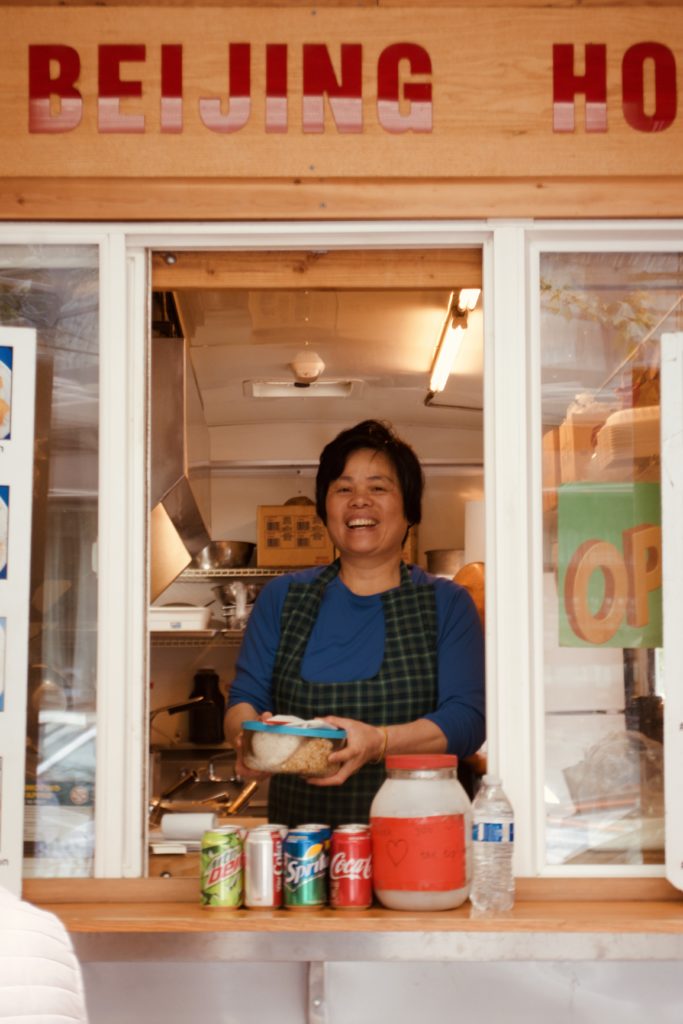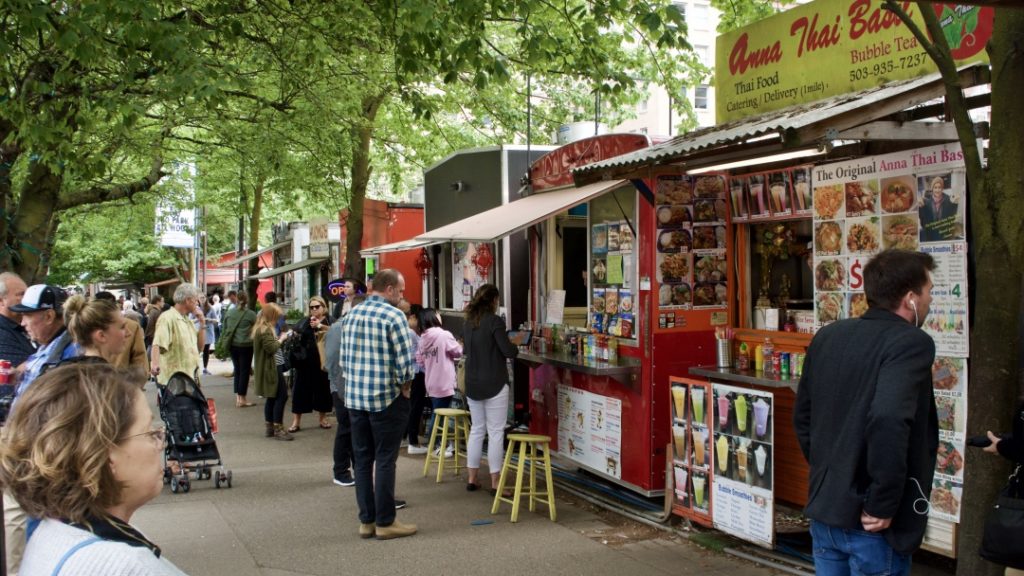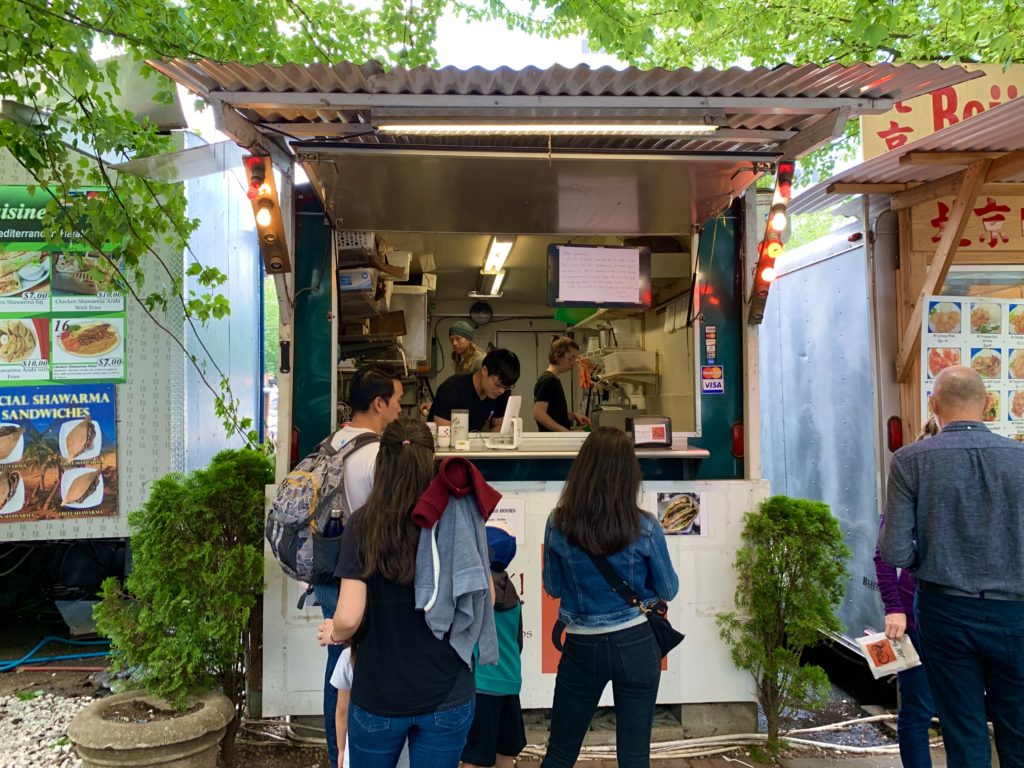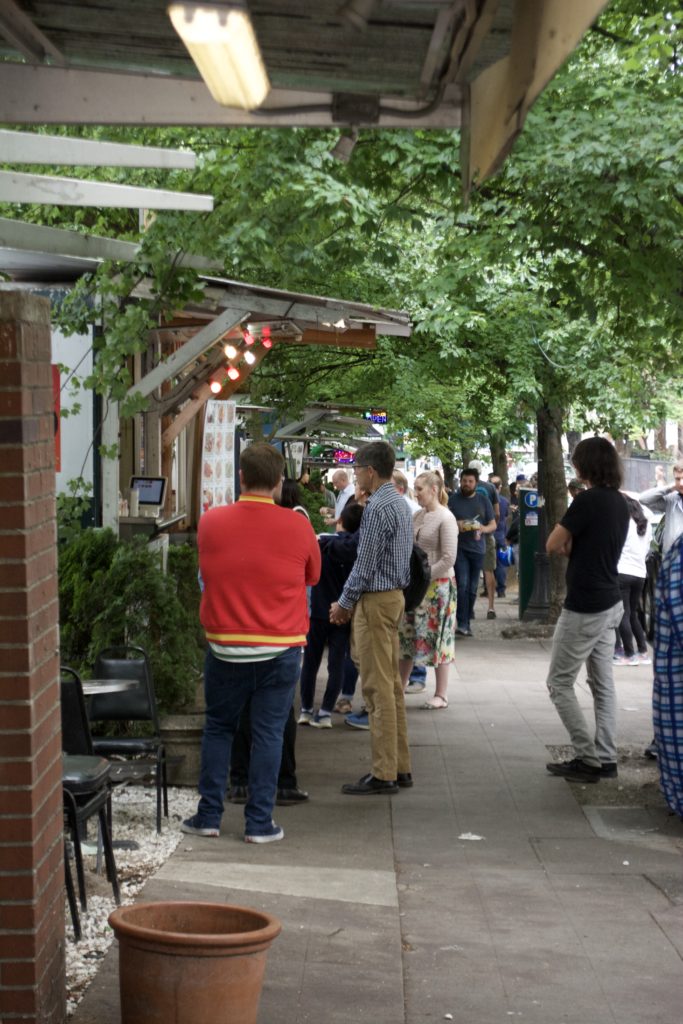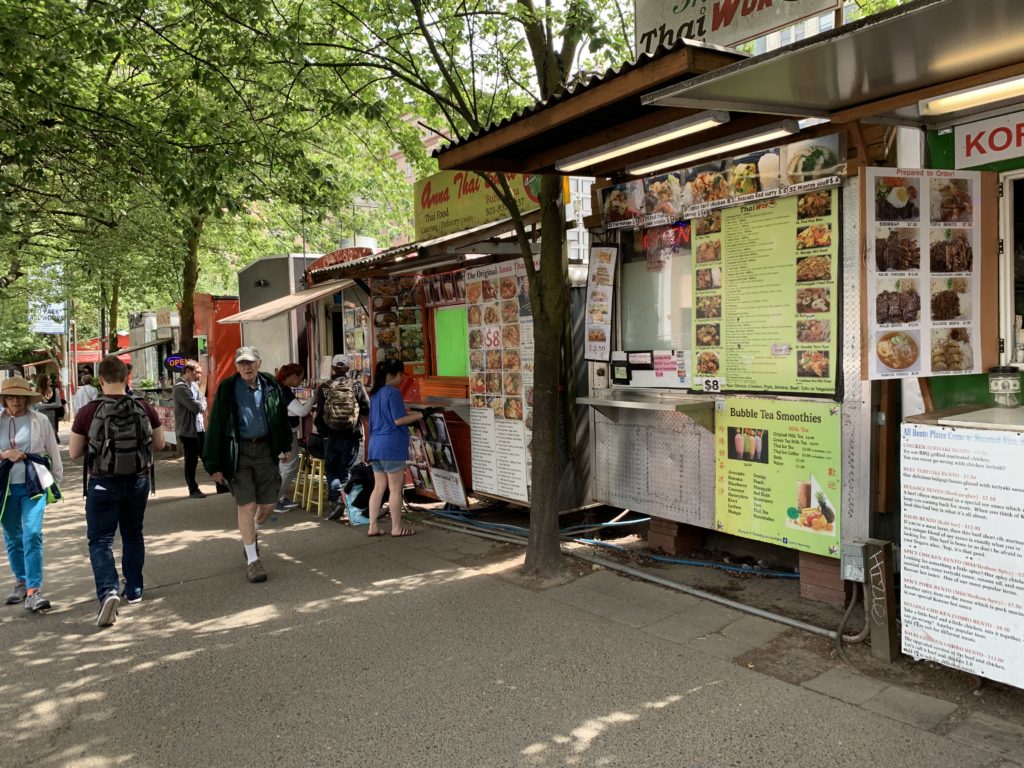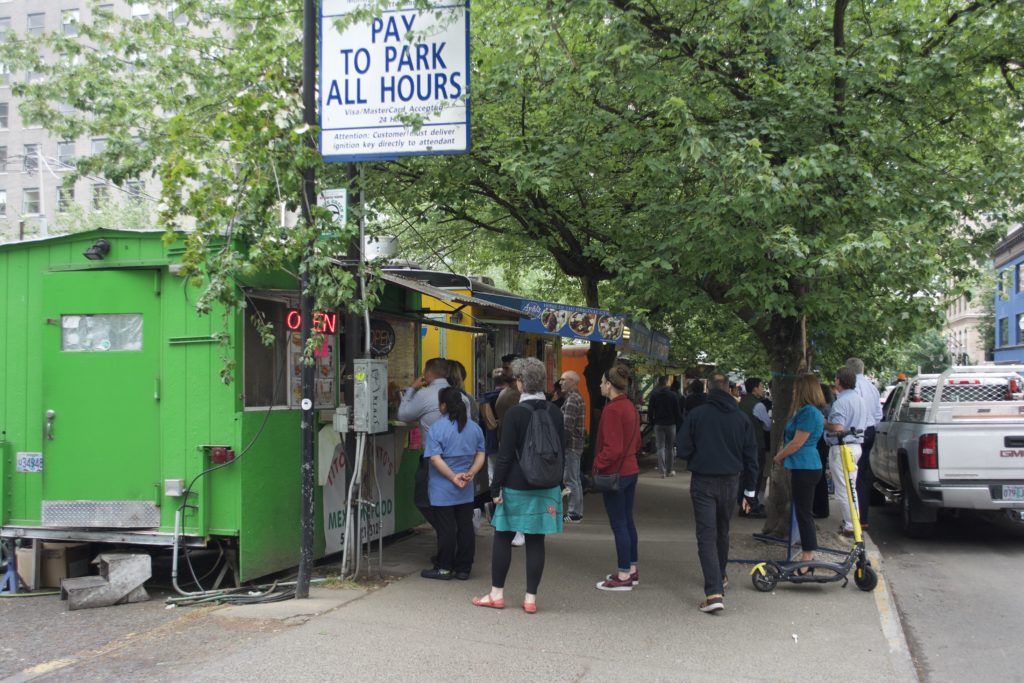The Alder Street Food cart pod was one of the largest and oldest food cart pods in Portland. It was located between SW Alder Street & SW Washington Ave. and SW 9th & SW 10th – also known as Block 216. The property was operated by City Center Parking.
At the height of Alder Street’s popularity, it was home to 54 food carts and employed approximately 300 people. The overwhelming majority of owners and the people they employed were BIPOC and/or immigrants.
Due to its location in the central city core and proximity to tourist attractions like Powells, it quickly became a popular destination for downtown office workers and visitors from all over the world.
Food carts were born in the last recession and helped to bolster the local economy in a time when it was most needed. In that environment, they flourished. They create affordable dining options for locals, enhance street vitality and attract tourists. Most of all, they are resilient.
Portland is growing and the parking lots that food carts call home are slowly being developed as hotels, housing and offices. This development is normal in a healthy city, but also means we need to think creatively to preserve this culture that we value.
Portland has a history of forward thinking urban planning – we are the planners that other cities look to for innovation and people-centered design. The Culinary Corridor and The Green Loop provide an elegant opportunity to build on the original experience of the food cart pod as a popular destination and link it to the City’s urban planning goals of supporting active transportation, economic vibrancy and equitable investments to entrepreneurs. On the Green Loop, food carts will be free to thrive.
In 2018, Friends of Green Loop saw the potential of this opportunity and worked with Randy Gragg who had created a concept called “The Culinary Corridor” – a project to move the food carts into the right of way. The Green Loop provided the perfect place to build it. With the support of Mayor Wheeler and City Council, Friends of Green Loop began working with Commissioner Eudaly’s office, Portland Bureau of Transportation and the cart owners to create a new place for the future of food carts in the city on the Green Loop.
The Culinary Corridor will be developed in 3 phases:
- Phase I – Ankeny West
Phase I will act as pilot program, allowing us to learn best practices around cart layout, needs, management, logistics and most importantly, how to accommodate food cart infrastructure in the street. - Phase II – O’Bryant Blocks
Phase II will begin shortly thereafter, continuing south from Ankeny West and around (not in or along) O’Bryant Square. This project will also help to restore and activate O’Bryant Square, which is currently closed. - Phase III – South to Director Park
Phase III will continue from O’Bryant Square to Director Park. The Block 216 project, the Ritz Carlton, will have a food hall that can hold 13 street level restaurants. With the inclusion of the food hall, this section of the Culinary Corridor adds another type of food experience to the Culinary Corridor.
Each new phase, starting with Phase I, can provide some funding towards the development of the next phase. In addition, some of the proceeds from food cart leasing fees will go towards maintenance and improvements as time goes by. In this way, revenue from the carts can help to sustain the Culinary Corridor.
Friends of Green Loop has a larger vision for the Culinary Corridor than the original vision presented at City Council. The proximity of the markets run by the Portland Farmers Market presents an opportunity to tie them into a unique experience. The Culinary Corridor could consist of Cart Blocks – from Ankeny West to Director Park, Park Blocks – the South Park Blocks and Market Blocks that contain the Farmers Markets.

This integration would allow cart owners to access local, sustainable food for their businesses from the PSU Farmers Market and the Shemanski Park Market. Goods could be transported via bicycle-based delivery services, like B-Line, along the Green Loop. The combination of these carts and farmers markets could create a much more robust and sustainable “Culinary Corridor.”
Later, pockets of food cart pods could then be developed all along the Green Loop and the Green Loop would become a food distribution network as well.
As we look at addressing Climate Change in the coming years, the Green Loop and Culinary Corridor will play a vital role in how we engage and participate in progressive, innovative solutions.
